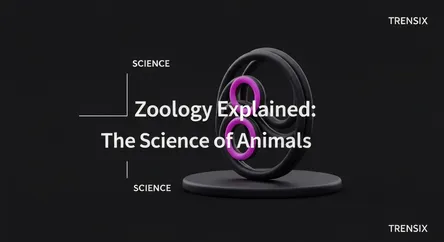Science
Zoology Explained: The Science of Animals

Discover zoology, the branch of biology dedicated to studying animal life, its importance for conservation, and its impact on our world.
What is it?
Zoology is the scientific study of animal life. As a major branch of biology, it encompasses the structure, embryology, classification, habits, and distribution of all animals, both living and extinct. Zoologists investigate everything from individual cells to entire ecosystems to understand how animals function and interact with their surroundings. This discipline provides a framework for understanding the entire animal kingdom, from the smallest insects to the largest whales.
Why is it trending?
Zoology is increasingly important in addressing critical global issues. As the planet faces challenges like climate change and habitat destruction, zoological research is vital for creating effective conservation strategies to protect endangered species and maintain biodiversity. By studying animals, scientists can monitor ecosystem health and better understand the far-reaching impacts of environmental change. The field also contributes to human health by studying diseases that can be transmitted from animals to people.
How does it affect people?
Zoology has a significant impact on daily life and society. It provides the foundation for veterinary medicine, informs wildlife management policies, and improves agricultural practices. The field offers diverse career paths, including roles in research, education, conservation, and at zoos and aquariums. For many, the study of animals fosters a deeper appreciation for nature and helps us understand our own role within the ecosystem, encouraging better stewardship of the planet for future generations.